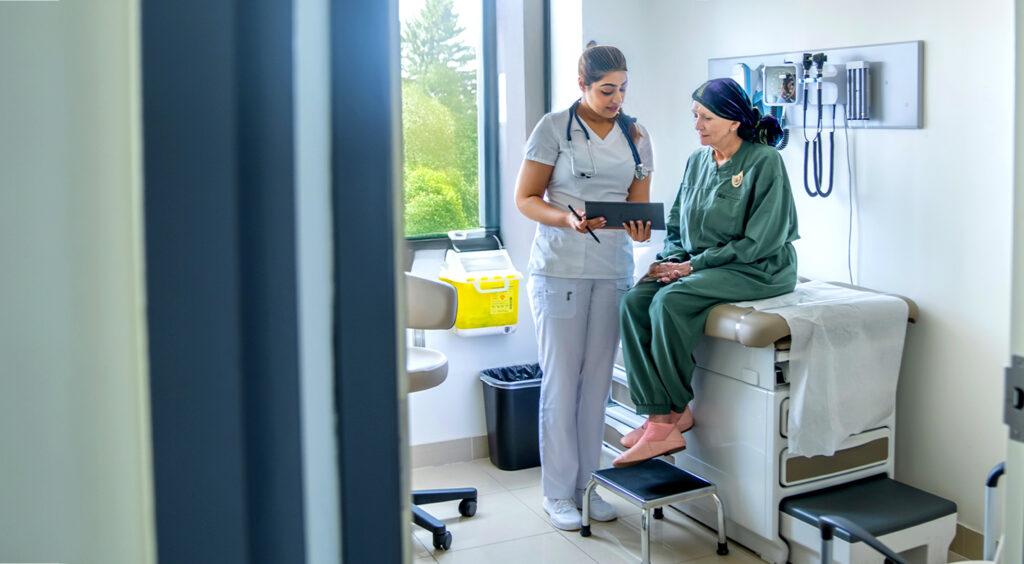Testing new ways to reduce the environmental impacts of food
Sustainable Bites: Food and Our Future What can we do to help make our food systems more sustainable? UBC researchers share small steps that can make a big collective impact.
Applying research to the real world is a crucial step that can lead to meaningful change—or reveal roadblocks that need to be addressed. John Madden, who is the Director of Sustainability and Engineering at UBC, explains how using the UBC Vancouver and Okanagan campuses as “living labs” helps people far beyond the university succeed in making our food systems more sustainable. It also helps to advance UBC’s Climate Action Plan 2030.

Did you know?
- Food systems at UBC Vancouver account for just over 21 per cent of UBC’s overall greenhouse gas emissions.
- UBC has set a target to achieve a 50 per cent reduction in food systems emissions by 2030.
How does treating UBC campuses as “living labs” benefit people outside the university?
“We have a unique opportunity to use our campus—the public realm, buildings and infrastructure—as a test bed for innovation,” Madden explains. “Students can take what they learn in the classroom and apply that to projects in the real world, right on campus.”
In this “living” lab, students can test innovative ideas and see what works and what doesn’t. They can then learn from their findings and build on them.
“We can use the campus as a demonstration model to scale innovation beyond the boundaries of the university,” Madden says. “Other companies and other institutions can learn directly from UBC because of what we’ve implemented here. They can see the successes and deploy those successes at scale to their organizations.”

What kinds of things is UBC testing around food systems and greenhouse gas emissions?
UBC aims to tackle all aspects of food systems, from sourcing local and sustainable ingredients to addressing waste produced from food and food packaging. For example, engineering students measured food plate waste at one of UBC’s dining halls. The student group calculated associated greenhouse-gas emissions from the wasted food, made recommendations for future waste audits, and suggested strategies to reduce post-consumer food waste.
UBC has also initiated a Zero Waste Food Ware Strategy, which aims to reduce and eliminate single-use foodware items on campus in support of a circular economy. The university is also developing and implementing mandatory guidelines to inform how food providers can procure climate-friendly food.
UBC is testing programs such as climate-friendly food labelling on its campuses. How could this help people make more sustainable food choices?
“The Climate-Friendly Food labels give consumers information about making better choices,” explains Madden. A menu item with a large, green Earth icon on it means that the meal generated less greenhouse gas emissions, water and nitrogen than other items on the menu.
The project team reviewed over 775 menu items to quantify their environmental footprints. This is the first time any Canadian university has taken on a project of this scale, positioning UBC as a model of how other universities can mobilize to address climate action through food systems.
UBCO Food Services is also making efforts to purchase food for its campus operations locally; it has partnered with Land to Table (L2T) on a pilot project with small-scale farmers.
How can people get more involved?
UBC’s Sustainability Engagement Programs empower students, faculty, staff and community members to create a more sustainable campus, region and world. These programs involve thousands of people every year in advancing resource conservation across campus, promoting sustainable behaviours and more.
The SEEDS Sustainability Program offers opportunity for students, faculty, staff and community partners to advance sustainability ideas, policies and practices on campus through applied research and interdisciplinary partnerships.
The Food Revolution Manifesto at UBC Okanagan includes ways people can help work toward a zero-waste campus. You can learn more about plant-forward eating, veganism and meal planning from UBC Food Services blogs.
This article was published on March 8, 2024. Feel free to share the video and republish the text of this article, but please follow our guidelines for attribution and seek any necessary permissions before doing so. Please note that images are not included in this blanket licence.
More stories
- 5 things you need to know: How to protect your health from wildfire smoke

- The leading risk factor for cancer isn’t what you think

- 5 things you need to know about measles

- How writing can help heal trauma from Residential Schools

- Staying socially connected can help maintain healthy eating with age, especially for older women

- How Canada can turn tariff tensions into a global affordable housing alliance
